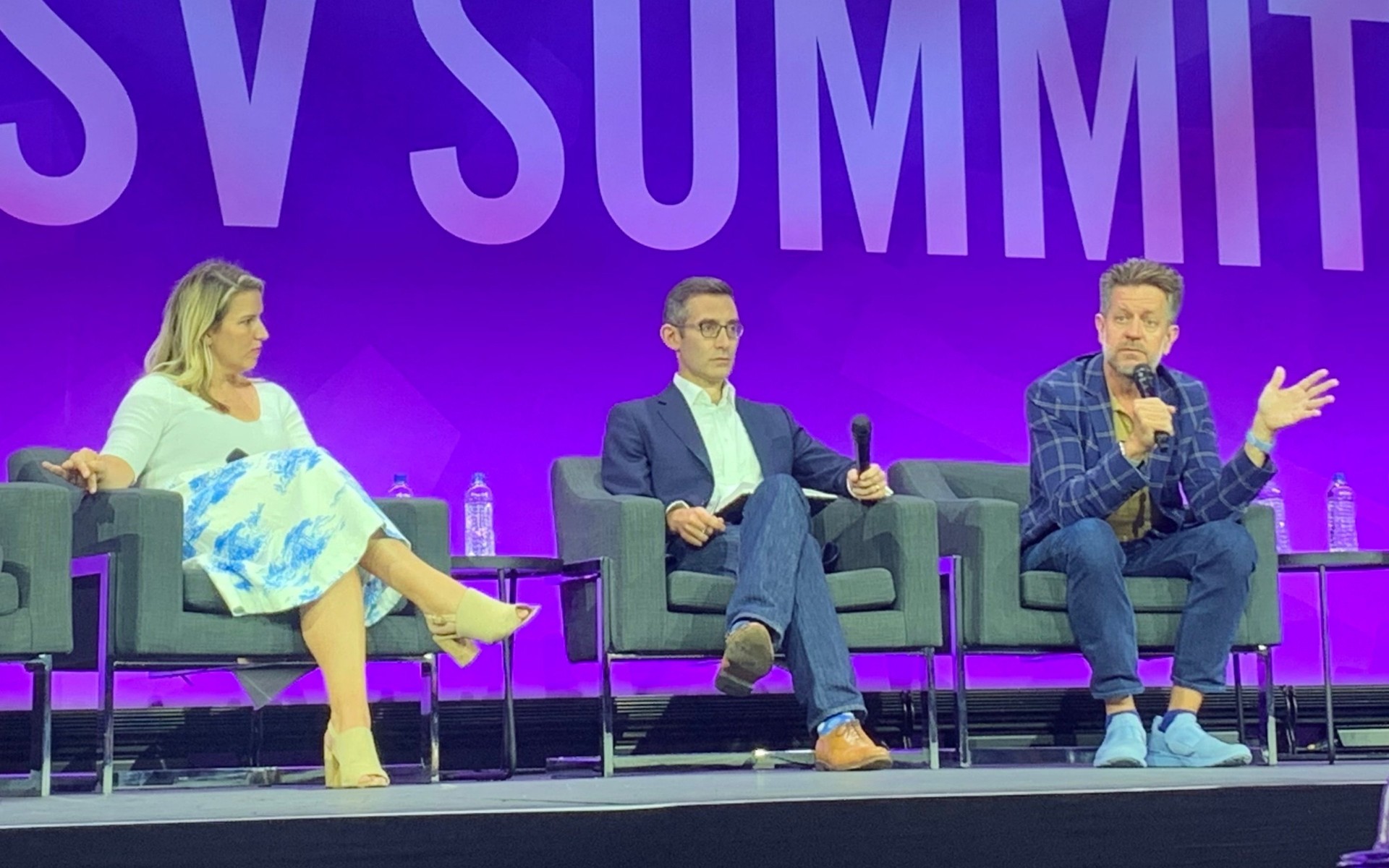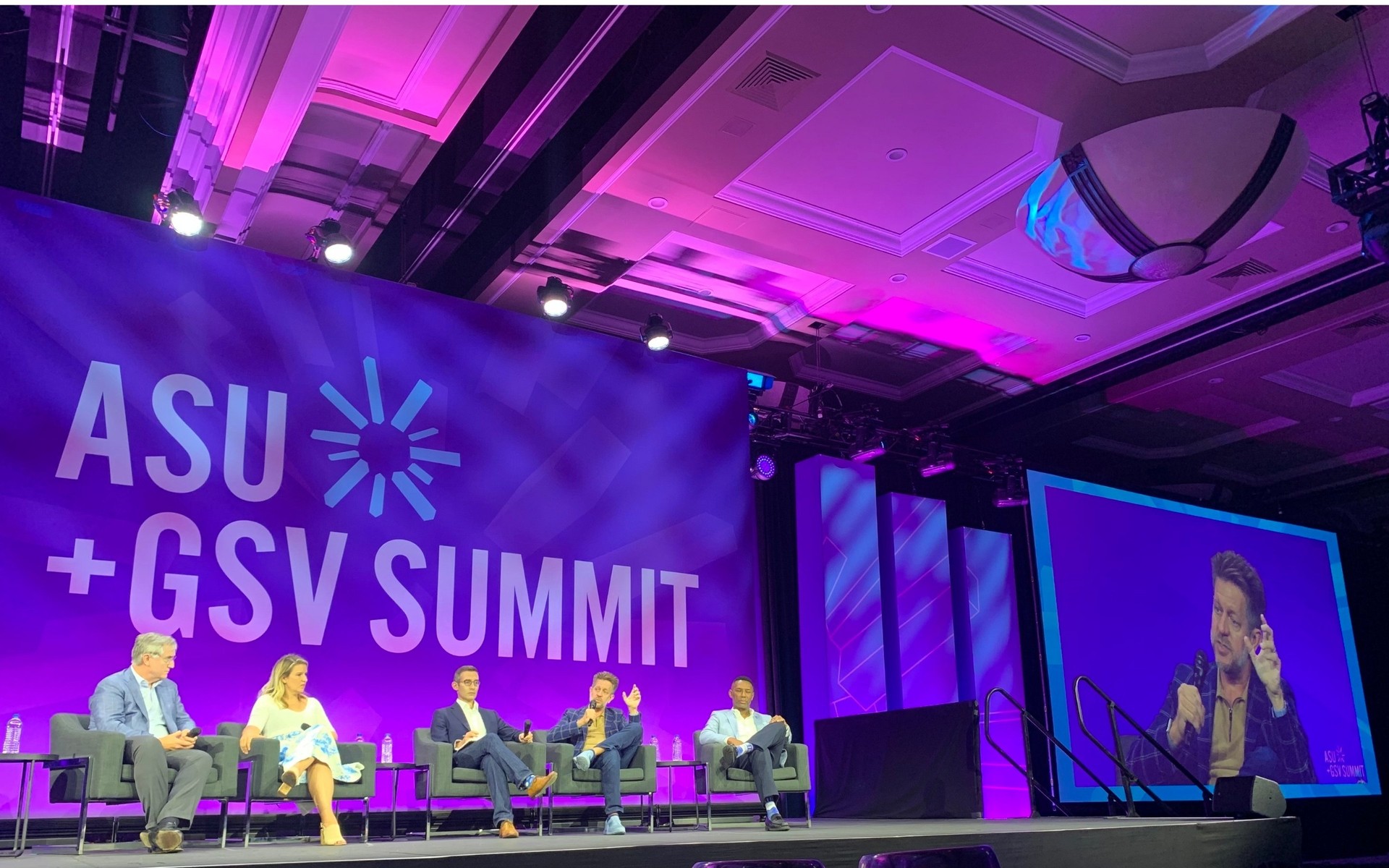Insights
Investing in Employee Education is Investing in People—and 3 Other Insights into the Future of Workforce Learning
Written by Lorrin Ortiz Mena on Aug 27, 2021
Related content: Leadership

Earlier this month in my hometown of San Diego, the energy in the air was electric. This year’s ASU+GSV Summit descended upon the city, bringing together over 3,000 education, technology, and business professionals to exchange invaluable resources and insights. I connected with 2U colleagues and others I hadn’t seen “live” in nearly two years, and with all the buzz around our intent to acquire edX and our growing roster of enterprise partners, it felt like I was constantly being sought after for deep conversations on the future of education.
Many of those deep conversations happened shortly after what I believe was one of the most inspiring sessions at ASU+GSV: a panel discussion on “Workforce Learning Driving Equity and Mobility” featuring Rachel Carlson, the co-founder and CEO of one of our enterprise partners, Guild Education, with whom I work closely in my role as vice president of enterprise business development, and 2U’s Co-Founder and CEO Chip Paucek. Since we work with Guild Education to help some of America’s leading companies offer their employees access to educational programs from top academic institutions, it’s a topic our enterprise team is very passionate about.
Chip and Rachel’s primary point on the panel was this: More employers are changing their focus from seeing employee education reimbursement as a line item in a budget spreadsheet (if it was even there in the first place) to being more vested in powerful learning opportunities for their workforce—and consequently, more invested in their people. By offering comprehensive employee education benefits as part of a larger strategic initiative to “do well by doing good,” these companies are paving more accessible pathways to jobs within their organization and beyond it. They’re discovering more viable ways to grow and retain great employees, and in the process, creating more diverse populations of lifelong learners.
This change in focus is literally changing lives for the world’s workforce. And at 2U, we’re just cracking the surface to all the possibilities with Guild Education and our other enterprise partners. I’ve been with 2U since we were still a startup; helping lead the charge in enterprise development is now bringing back all that startup energy and excitement, all over again.
Here are three other top takeaways from the ASU+GSV session featuring Chip and Rachel.

Companies Are Having a Wake-Up Call
We’re in the middle of a “turnover tsunami.” As millions of people switch jobs during the “Great Resignation,” organizations across the world face a resounding wake-up call: employees need more.
The panel emphasized learning and development (L&D) investments as one way for leaders to differentiate their companies in a crowded market. “The companies that are winning the war on talent are those that are offering education, reskilling, and upskilling,” said Rachel. “It’s no longer an option to have L&D. It’s table stakes. The question is: How differentiated is that benefit? Is it debt-free? Is it tied to internal mobility within the company? Does it give workers a chance to see beyond the job they’re in today?”
Lifelong Learners Need Flexible Education Pathways
Technology is changing the working world. And yet, modern topics like coding and fintech aren’t taught at many universities—creating a demand for alternate, real-world education that equips students with the skills needed to succeed in the 21st century. As Chip put it, “The need for upskilling, reskilling, and connection between higher ed and the workforce is a big problem at scale. Not everything can be met by a degree, and sometimes people need a shorter-term path.”
To that end, he highlighted another 2U partner that’s tackling this problem head-on: Netflix, which has collaborated with several Historically Black Colleges and Universities (HBCUs) and Hispanic-Serving Institutions (HSIs) on fully funded, online tech boot camps for their students and alumni. “A world leader like Netflix addressing this challenge is amazing,” he said. “Netflix hires about 10% of students directly from the boot camp, and the rest go through 2U’s career services. We’re excited to roll that out to large employers everywhere.”
Transparency and Empathy Are Key
As Chip noted toward the end of the conversation, part of showing support means being transparent with your workforce: clearly communicating where your company is and where it’s going.
To illustrate this point, Chip shared an anecdote about 3,000+ 2U employees tuning into a voluntary company-wide Zoom call to learn about internal diversity metrics. Employees clearly care about corporate data—and leaders should proactively provide it. “Improving transparency as an employer is a huge part of solving the problem, keeping your employees, and retaining high-quality talent,” said Chip.
Empathy is also essential, added Rachel. “It’s the only thing that’s helping companies lead today’s workforce, rather than yesterday’s workforce that assumed loyalty,” she said. “I need to recognize that my employees are in a social contract with me and with Guild. It’s the same for every company. What’s the social contract you’re creating between your company and the workforce?”
~~~
Latest.
Learn more about us.
At 2U, we’re on a mission—to eliminate the back row in higher education and help universities thrive in the digital age. To learn more about who we are and what we do, follow the links below.